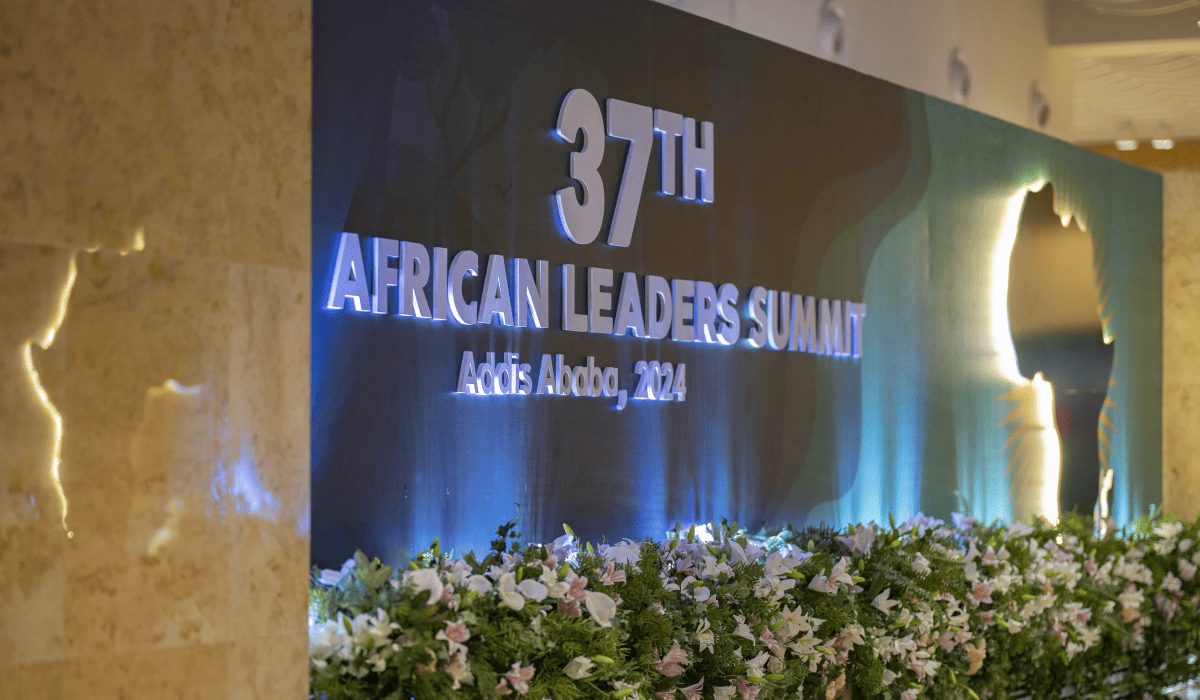In May 2018, the African Union Peace and Security Council (AU-PSC) embarked on a pivotal journey. Recognising the profound security implications, the PSC initiated a critical study on the nexus between climate change and conflicts in Africa. This effort was further endorsed by the AU Assembly, in its February 2022 and 2024 sessions, which reiterated the imperative for developing a comprehensive Common African Position on Climate, Peace, and Security (CAP-CPS).
Subsequently, the Chairperson of the AU submitted his report to the PSC in March 2024, outlining the challenges and providing concrete recommendations for addressing climate change in Africa, highlighting the importance of key stakeholders such as the Regional Economic Communities, and African civil society. The report emphasises enhancing governance by strengthening climate-security capacities, ensuring inclusivity, with a focus on marginalised groups. Finally, it stresses the need to mobilise finance, close the adaptation financing gap and ensure a just transition to meet Africa’s unique challenges.
The AU has since identified 15 key messages on the Climate Change, Peace, and Security Nexus, which were presented at COP27. These messages highlight the direct and indirect impacts of climate change on peace and security, advocating for a peaceful and stable continent to facilitate effective preventive, adaptation, and mitigation efforts. Key areas of focus include national ownership, coordinated approaches, climate financing, early warning systems, and addressing climate-induced displacement and migration.
These messages highlight the direct and indirect impacts of climate change on peace and security, advocating for a peaceful and stable continent to facilitate effective preventive, adaptation, and mitigation efforts.
Tweet
It is crucial to note that these key messages highlight how climate change security risks adversely affect vulnerable groups such as women, children, and refugees, in Africa. Through these messages the AU stressed that just transition pathways are essential for growth and development, and failure to address climate change can exacerbate vulnerabilities.
In August 2024, a Member State Consultation in Nairobi, Kenya, brought together over 100 participants from various sectors of society to deliberate on the process, focus and overall thrust of the CAP-CPS.
We have undertaken an initial study that culminated in the Africa Climate Security Risk Assessment (ACRA) which was launched at COP28. This assessment provides crucial preliminary data that will contribute to the development of the Common African Position on Climate, Peace, and Security (CAP-CPS).
It is important to highlight that the Nairobi consultation, among other things, adopted eleven guiding principles, which include:
- African ownership, leadership, and agency
- Focus on prevention and resilience building instead of response
- Responses to climate-change-related peace and security risks must be multi-faceted and cross-sectoral
- All actions on climate-change-related peace and security risks must be complementary
- Recognize and address the diverse impact of climate, peace and security on men, women, youth and children
- Climate-related peace and security risks are context specific
- Indigenous and local knowledge is essential for addressing climate-change related peace and security risks
- Partnerships & mutual accountability are necessary to address climate-related peace and security risks
- The right to balance development and climate mitigation ambitions
- Encouraging community engagement and empowerment
- Inclusivity and mutual accountability
The Nairobi consultation also identified nine key challenges, which are as follows:
- Governance and fragility
- Natural resources conflict management .
- Non-state actors.
- Climate variability.
- Livelihood sustainability and poverty.
- Displacement and mobility.
- Differential vulnerabilities (Women, Youth, Children, People with disabilities, Indigenous people in local communities).
- Impact of climate change on maritime security.
- Negative impacts of climate mitigation and adaptation interventions.
To address these, the Nairobi consultation outlined eleven priorities:
- Conflict-sensitive climate adaptation.
- Comprehensive Strategies and policies.
- Strengthening adaptation and Climate, Peace and Security capacities.
- Strengthening regional organisations.
- Adequate Financing.
- Just transition and technology transfer.
- Addressing differential vulnerabilities among the various demographics.
- Effective governance of natural resources.
- Addressing climate-induced migration and displacement.
- Enhancing early warning.
- Fostering partnerships.
Moving forward, the AU Commission will develop the CAP-CPS through a comprehensive and inclusive process. The CAP-CPS is a significant step in addressing the complex challenges posed by climate change on peace and security, enhancing the AU’s global influence, fostering collaboration, and attracting climate finance. It aims to bridge policy gaps, integrate climate change into peace and security strategies, and address the root causes of conflict exacerbated by climate change.
On 17 October 2024, the AU Peace and Security Council (AUPSC) and the UN Security Council (UNSC) during their joint annual consultation, amongst other things, deliberated on the necessity of integrating climate-related security risks into peacebuilding efforts. The discussion focused on how to develop joint frameworks, invest in capacity building and training, and engage local communities in decision-making processes. The two Councils emphasised that policy and decision-making gaps can be addressed through policy harmonisation, resource mobilisation, and inclusive governance structures.
Furthermore, on 30th October 2024 the PSC adopted a Communique which emphasises the importance of strengthened cross-sectoral coordination on climate, peacebuilding, development, and humanitarian issues. It also stresses the importance of prioritising water and food security, sustainable cross-border transhumance, and holistic responses to climate impacts, including sea-level rise and desertification.
As we stand at the crossroads of climate, peace, and security, our path forward must be one of unity, resilience, and proactive engagement. The process of developing the Common African Position is a call to action, reflecting our collective will to address these intertwined challenges with African solutions.
Dr Alhaji Sarjoh Bah is the Director of the Conflict Management Directorate of the Political Affairs, Peace and Security Department at the African Union Commission. This blog is an edited version of the statement Dr Bah delivered at COP29 in Baku, Azerbaijan on 15 October 2024.

